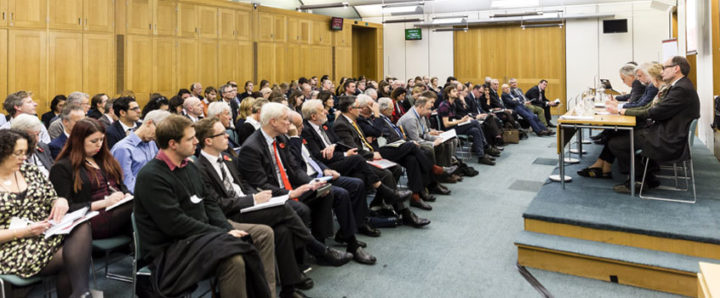Climate change: Risks and opportunities for the UK
Experts in farming, health, defence and business discuss implications for the UK of the recent IPCC report
By Richard Black
info@eciu.netShare
Climate change will increasingly pose serious challenges to Britain and British interests, but addressing climate change will bring significant opportunities for British business.
That was the conclusion of speakers at a Parliamentary event on 10 November organised by the Energy and Climate Intelligence Unit (ECIU), which discussed implications of the recent Intergovernmental Panel on Climate Change (IPCC) report for the UK.

Professor David Walker, Deputy Chief Medical Officer for England, said that the increasing frequency of heatwaves forecast for the future presented a particular risk to countries with an aging population, like Britain.
“The 2003 heatwave saw 70,000 deaths in Europe more then would have been expected had that not happened, and 2,000 of those deaths were in the UK.
“If climate projections are realised in 30 or 40 years, [2003] would likely be an average summer in the UK.”
He said any reduction in winter mortality due to warmer winters was likely to be modest by comparison – only 2.5-3%, compared with a doubling or tripling of summer mortality from heatwaves.
Dr Walker also said that the incidence of anxiety and depression is 2-5 times higher in groups of people affected by flooding, compared with the general population. And warmer conditions mean that serious vector-borne diseases such as dengue fever and Chikungunya virus are moving northwards in Europe.
“But If we reduce our emissions we will reduce air pollution, and air pollution is responsible for tens of thousands of deaths in this country every year,” he concluded.
Additional instability in the world outside Britain will have implications for security forces and the military, said Rear-Admiral Neil Morisetti, Former Commander of UK Maritime Forces.
“Climate change is acting as a threat multiplier,” he said.
“It is posing a risk to geopolitical instability; which is not, as some people think, an end state in itself – it’s a prerequisite for economic growth, good health, wellbeing and for order.
Additional stresses in already hard-pressed societies, including some Commonwealth nations, would be likely to require an increase in demands on the military for conflict prevention, conflict resolution and humanitarian intervention, he said.
“There is no security solution to climate change; we could probably secure a 2°C world. I think it’s most unlikely that we would be able to secure a 4°C world.”